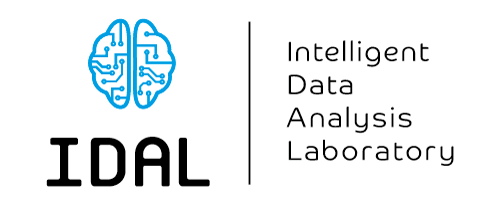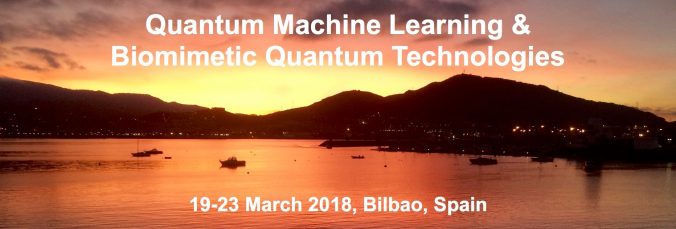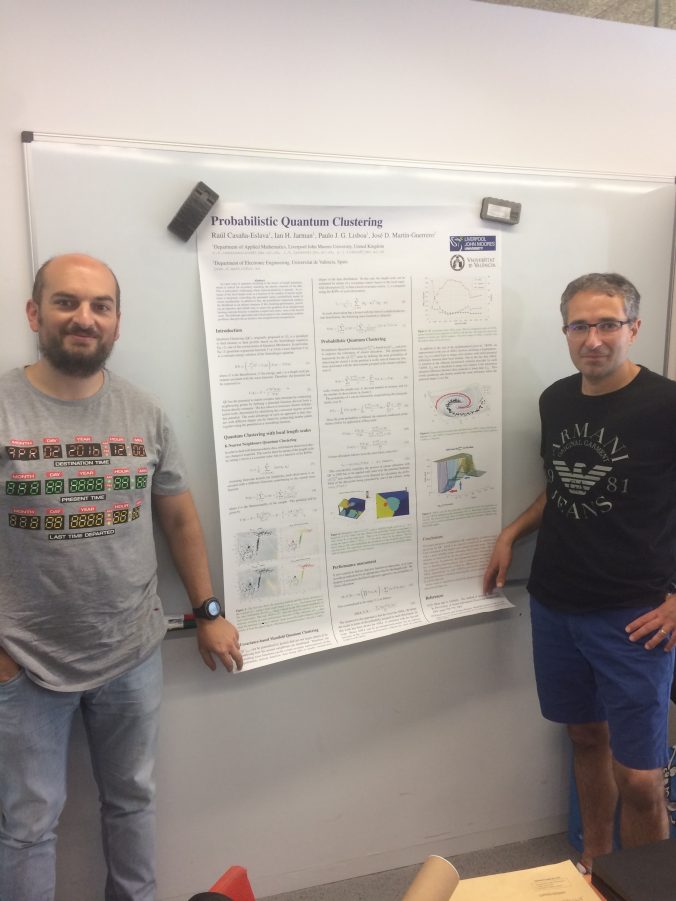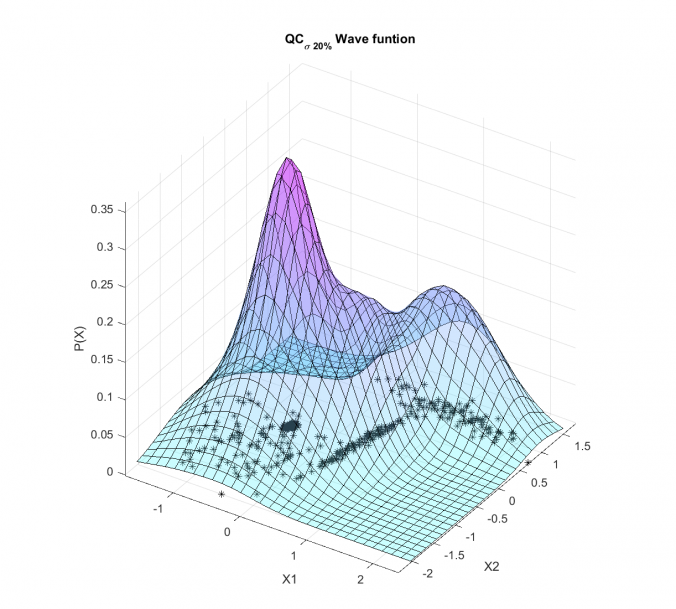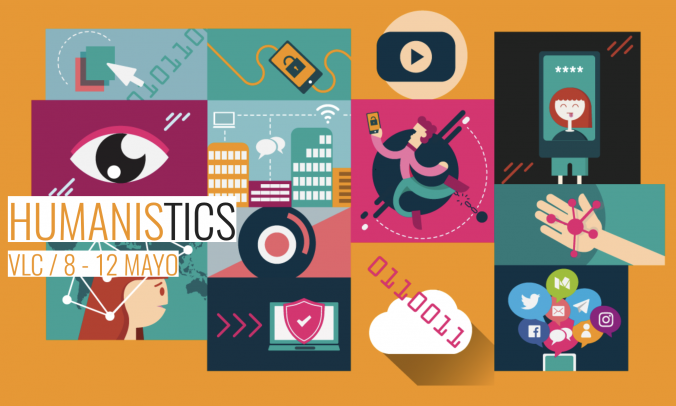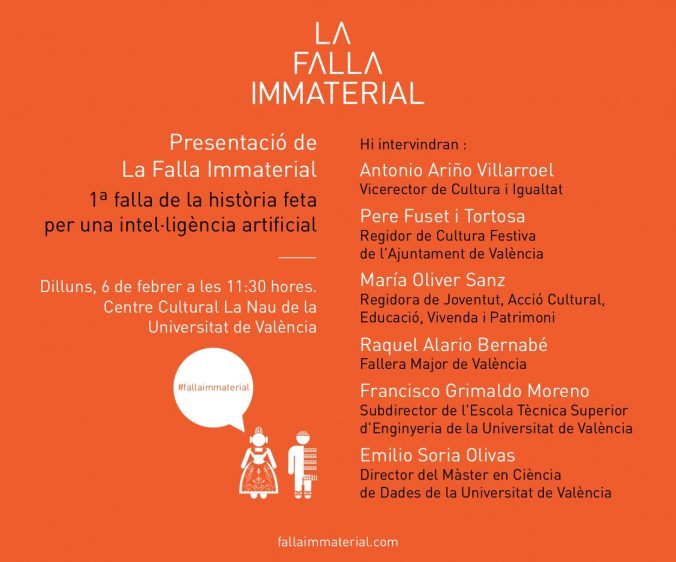Author: jovifran (Page 4 of 14)
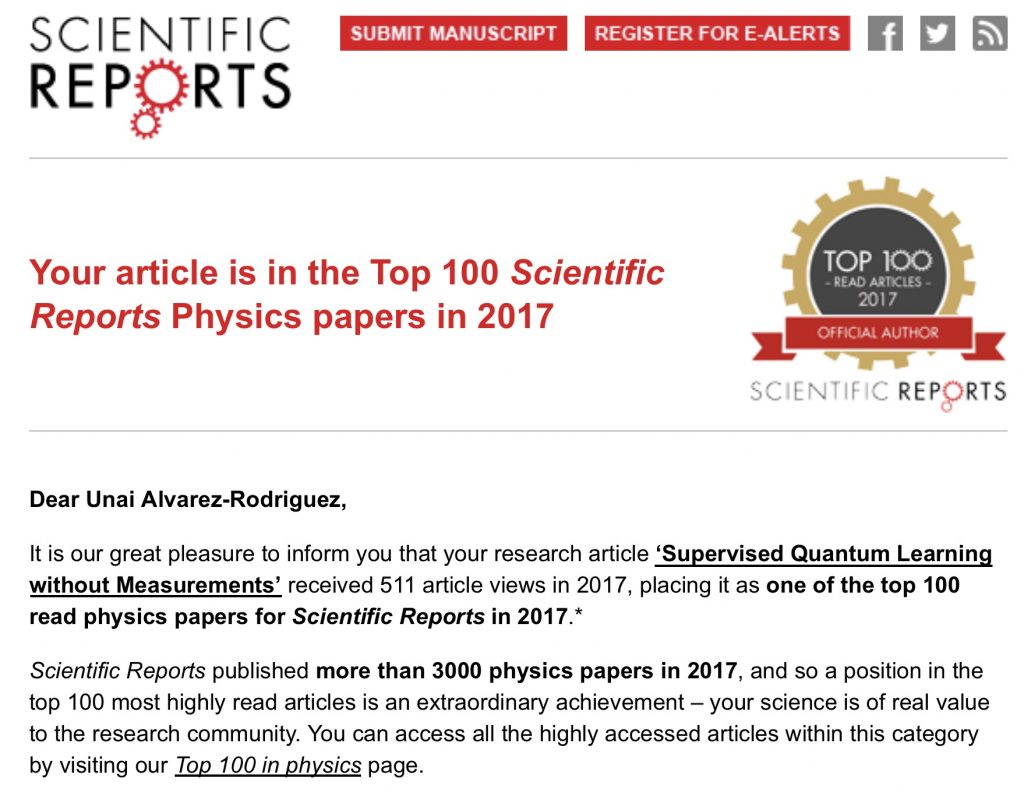
IDAL was represented at the Workshop on Quantum Machine Learning and Biomimetic Quantum Technologies (http://www.qutisgroup.com/qml_bqt/), held in Bilbao from 19th to 23rd March 2018. José D. Martín-Guerrero, who took part in the organizing and scientific committees of the workshop, gave a keynote talk entitled “Enhancing ML through the synergy of classical and quantum approaches” and participated in the round table “Quantum meets Industry”. Raúl Casaña-Eslava gave a talk about his work on Probabilistic Quantum Clustering. The workshop has attracted more than 100 attendants, being among them the most representative researchers of the world in the field of Quantum Machine Learning. The scientific activity has been hectic during all the week with the presentation of many outstanding works.
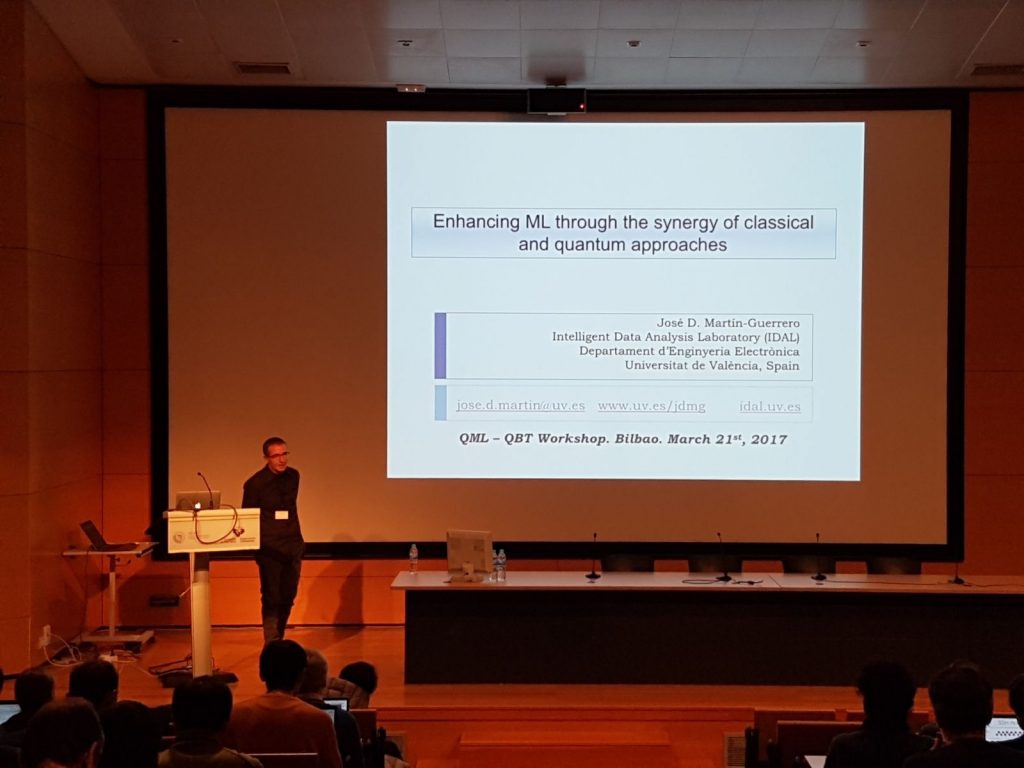
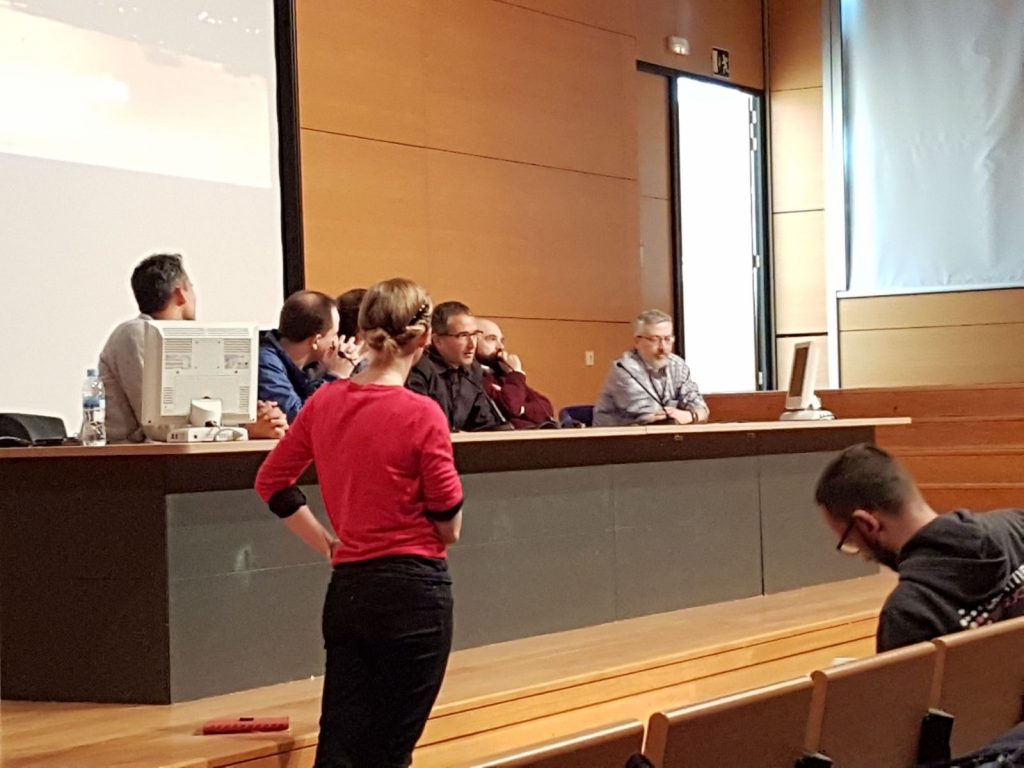
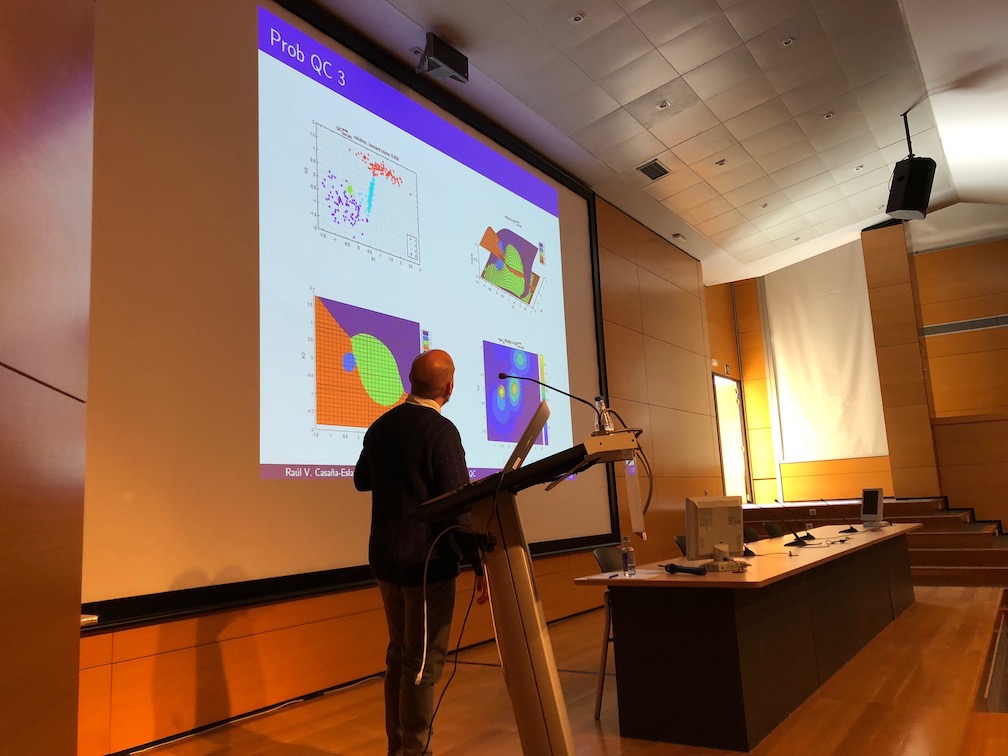
Raúl Casaña-Eslava, a former IDAL researcher who is currently carrying out his PhD at Liverpool John Moores University (LJMU), received the best paper award at the summer school on Machine Learning organized by the Institute of New Imaging Technologies (INIT) of the University Jaume I (Castellón, Spain) and co-sponsored by the Spanish Association of Pattern Recognition and Image Analysis (AERFAI). Raúl presented his recent work on Probabilistic Quantum Clustering, one of the cornerstones of his PhD. The awarded poster was co-authored by two other members of the Department of Applied Mathematics at LJMU and by the IDAL member José D. Martín-Guerrero.
Prof. Emilio Soria will give a lesson on increasing the profit of a company by means of Data Analysis within the programme “Open Lessons on Business Innovation”. This programme is organised by the University–Business Foundation of the University of Valencia (ADEIT).
Prof. Soria’s talk will review the concepts of big data, smart data, Internet of things, Industry 4.0 and Deep Learning, and how to use this concepts in the context of running a business. The talk will take place next Wednesday, 21st of June at 9 a.m. at the ADEIT headquarters (Pz. Virgen de la Paz, 3, Valencia).
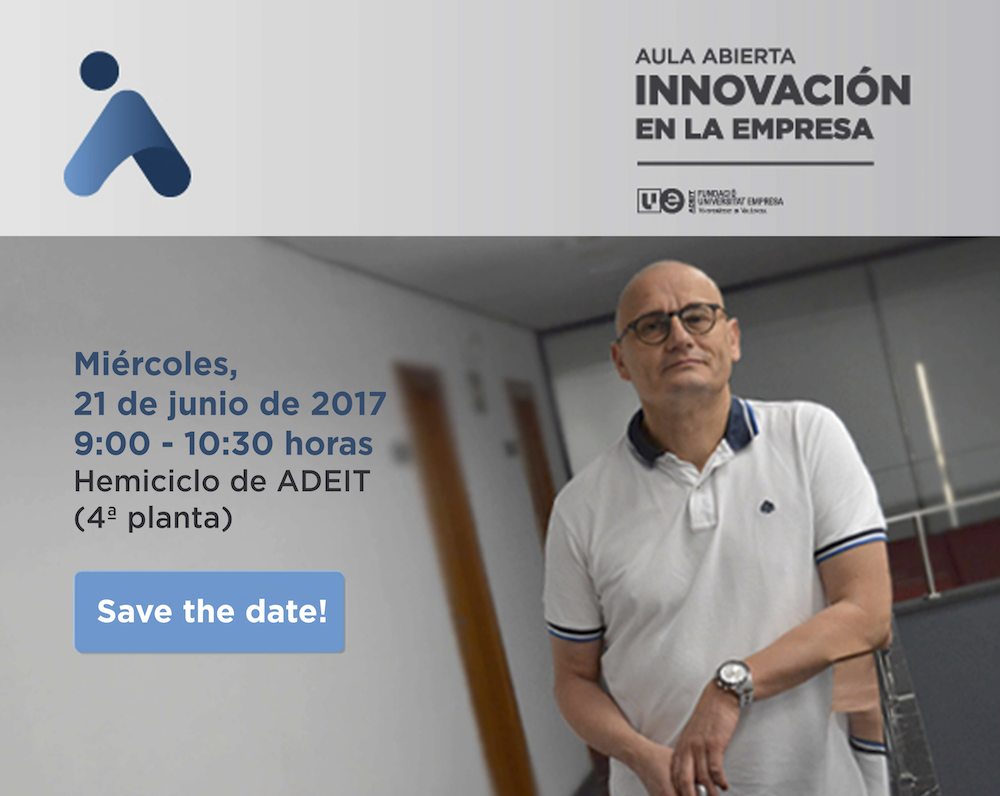
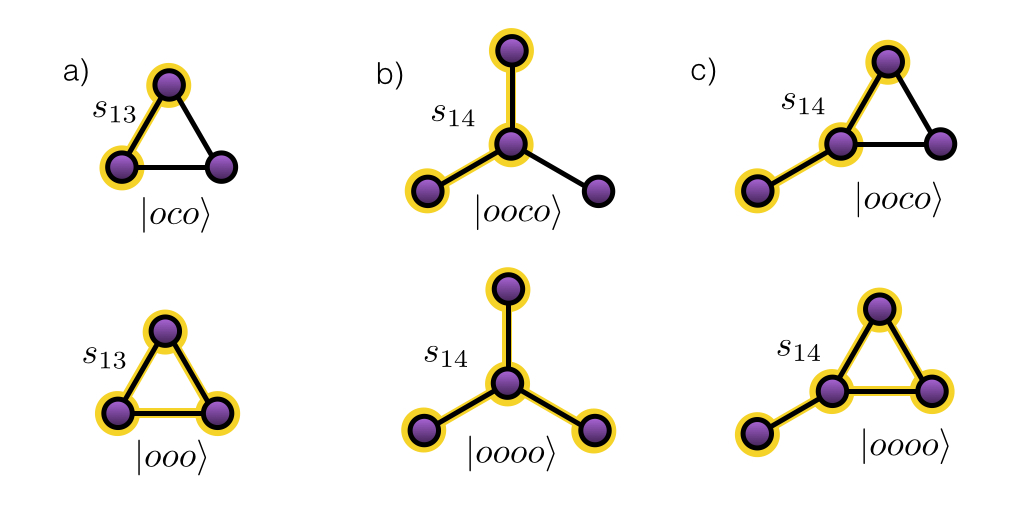
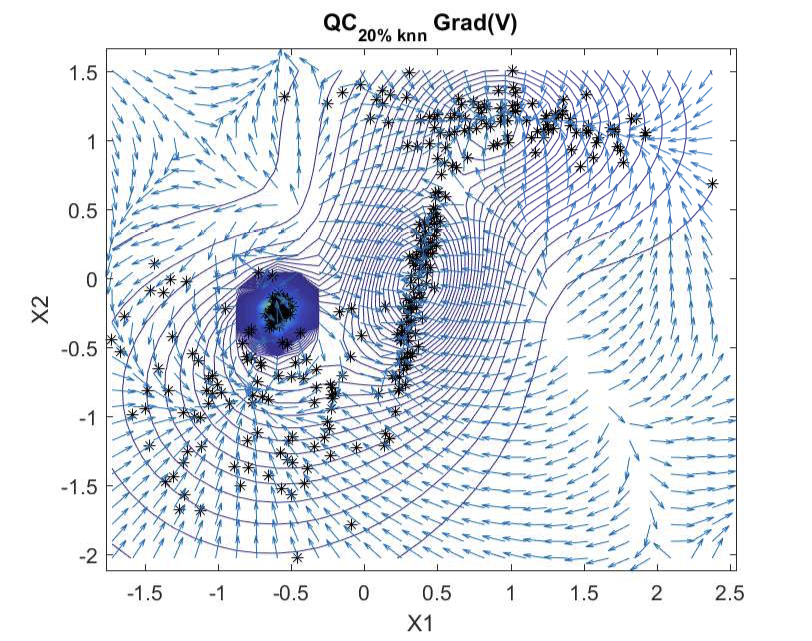
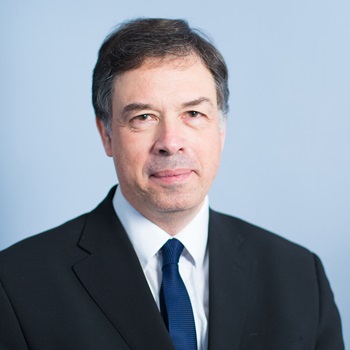
Professor Paulo J. G. Lisboa visits IDAL
Professor Paulo. J. G. Lisboa from Liverpool John Moores University visited IDAL on 2nd May to give a seminar entitled “Data insights from machine learning with applications to biomedical data”. Prof. Lisboa is one of the most worldwide-recognized personalities in biomedical applications of machine learning and data analysis, currently chairing the Horizon2020 Advisory Group for Societal Challenge 1 (Health, Demographic Change and Wellbeing) and the IEEE Task Force on Medical Data Analysis.
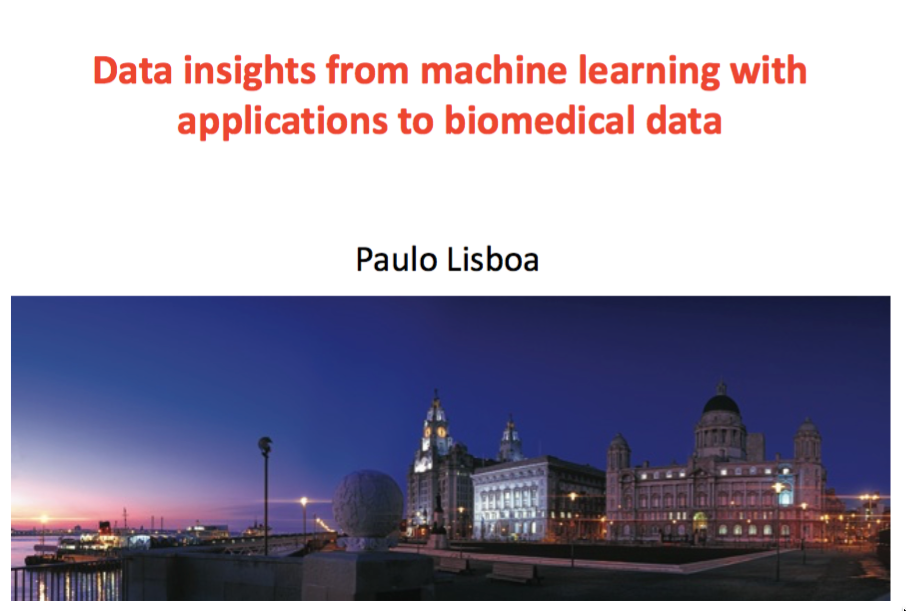
Prof. José D. Martín and Prof. Emilio Soria recently participated in the organization of a special session at ESANN 2017, held in Bruges (Belgium) from 26th to 28th April. The session was entitled “Randomized Machine Learning approaches: analysis and developments” (https://www.elen.ucl.ac.be/esann/index.php?pg=specsess#random) and was organized in collaboration with Drs. Claudio Gallicchio and Alessio MIcheli, from the University of Pisa.
Prof. Emilio Soria has been invited by Fòrum Universitari Joan Lluís Vives to participate as a speaker during a forum on Transparency and Open Governance sponsored by the Youth Council of the Local Government of Valencia.
The XXV Fòrum Lluís Vives will take place on May 8th on the Municipal Youth Office (Campoamor 91, Valencia) starting at 5 pm. The forum will start with the broadcast of Javier Gallego’s radio programme Carne Cruda, followed by a discussion panel about Transparency and Open Governance. The forum will finalise with an open debate about open administration and transparency with the participation of Valencia City Major, Joan Ribó, and the representative of the Regional Office of Transparency, Manuel Alcaraz.
More information: https://www.eventbrite.es/e/entradas-radio-carne-cruda-mesas-abiertas-transparencia-foro-humanistics-33972124539
Interview with Prof. Emilio Soria about Open Data on Fòrum Lluís Vives: http://www.forolluisvives.es/noticias/emilio-soria-transparencia-nikola-tesla-mazinger-z/
Due to the recent statement of Fallas festivity as UNESCO’s Intangible Cultural Heritage of Humanity, the UV School of Engineering has developed with the support of the IDAL the ‘intangible falla’. This is the first intangible falla ever. The falla was introduced during an open event, that took place on Monday, 6 February.
The event counted on the interventions of Antonio Ariño, Vice-Principal for Culture and Equality; Pere Fuset, Councillor for Culture and Festivals of Valencia; Maria Oliver, Councillor for Youth, Cultural Activity, Education, Home and Heritage; Raquel Alario, Fallera Mayor of Valencia; Francisco Grimaldo, Assistant Director of the UV School of Engineering, and Emilio Soria, Director of UV Master’s Degree in Data Science.
The intangible falla is an artificial intelligence project that suggests public involvement to build it daily until 19 March. The initiative will become a reality in the form of several monuments and actions, as explained during the presentation ceremony.
The intangible falla will be built earlier, although this usually occurs in early March. The assembly of the first intagible falla begun 6 February during the open presentation ceremony.
Link: fallaimmaterial.com
For further info on the Fallas: https://en.wikipedia.org/wiki/Falles
